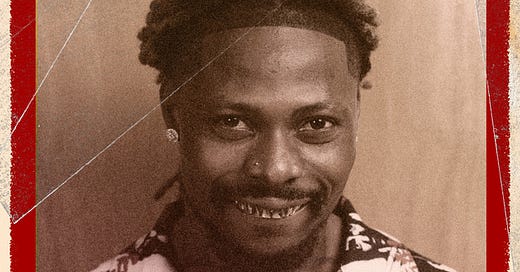Genre of the Day - Afropiano
Album of the Day - Mr. Money with the Vibe by Asake (2022)
June 19, 2024
Everybody loves a crossover episode. The marriage of two popular genres that initially seem like they’d have little musical overlap can be a counterintuitive perfect pairing, speaking as a fond lover of bachatón. Within the social media sphere, South Africa and Nigeria have become famously bitter rivals. As the economic vanguards and leading cultural powerhouses (all love to Ghana, but let’s be real here) of their respective regions of Africa, it is inevitable to butt heads here and there in the battle for which country is going to exert more continental and global influence as they sit at near-identical GDPs.
It’s mostly good-spirited, and often revolves around football. As unbearably slow as I find soccer to be, I respect it for allowing countries across continents to steam off some intercultural tension in a less bloody and more entertaining manner than war. Tyla’s “Water” and its viral dance became South African amapiano’s calling card on the international stage last year. Some Nigerians clearly felt some ire at the song, representing the emerging sound’s breakthrough moment, beating out many artists hailing from the country—including today’s artist!—when Tyla took home the Grammy for Best African Music Performance this year. After triumphing over South Africa in an Afcon football match, some Nigerian fans rejoiced with pettiness, proclaiming that the South African team had evidently neglected to drink enough H2O and sarcastically chanting the song. Despite the sting of the football loss, I can’t see this as a situation where Tyla and amapiano fans don’t get the last laugh here: it’s the South African song that’s catchy enough to be chanted, even if tongue-in-cheek.
As Nigerian-born artist Sade declared in “War of the Hearts,” the two countries have to make the peace between these spats, and many Nigerian artists have done so by embracing amapiano. Afrobeats broke out internationally before amapiano, so chronologically it gets the investigative treatment first. It emerged in the 2000s in West Africa, taking influence from collage of sounds from around the continent and diaspora to form a cohesive, poppy sound with elements from multi-textured, complex folk percussion and rhythms, hip-hop, highlife, Yoruba jújù music, and smooth R&B. It has become a runaway success globally, with massive figureheads like Burna Boy, Tems, Wizkid, and Davido being tapped by American artists like Drake and Justin Bieber for some international cool points.
Amapiano lies at the end of a totally different evolution, aiming for a darker, more loungey sound growing out of kwaito, a South African genre that arose in the 1990s with strong influence from the deep basslines of UK house, with the 1991 tune “Uskamosothotsa” by Professor Rhythm below representing an early, ebullient iteration of the sound. Amapiano features jazzy, subtle piano flair and the sound of programmed log drums, which elevate the commanding thump of the traditional hollowed out drums into a house context. Artists like Tyla paring down amapiano to pop structures parallelling those of Afrobeats, as amapiano DJs typically favor grooves on the longer side of six minutes, has helped the genre garner global attention.
These two pioneering genres in contemporary African music have met in the middle thanks to Afrobeats artists noticing the momentum of amapiano and adding it to the recipe book. They do so by adding the assertive log drum as the central bass figure, more jazz-infused melodies, and the hypnotic simplicity of amapiano’s shaking shuffles to Afrobeats’ pop/R&B creative energy and sound-melding gusto. This isn’t Asake’s first dip in the amapiano pool, as he literally titled an earlier song after the genre, but it’s nice to see explicit credit to the genre as he molds his fusion. It’s a sound he wears well, from the resounding chanted chorus and Yoruba verses of “Organise” and its succulent saxophone filling the airy amapiano shuffle with joy. The subtlety employed with the log drum bassline coming in on the chorus of “Nzaza” displays Asake’s ability to incorporate the magic of the sound with grace, leaving room for his passionate vocal. That grace isn’t always there: for some reason, he thrusts Russ upon the listener for a verse on “Reason” in which the rapper stumbles through a verse where he aims to depict his struggle through an unaligned Nissan. Russ’ clumsiness is perhaps a necessary sin to prove Asake’s deft capability to melodically adapt to amapiano’s groove. This set makes the bid that the powerhouse genres, no matter the countries’ rivalries (and I’m sure the 2025 Grammys will be another tense moment), stand to gain new horizons through sharing and mingling on the dance floor.




